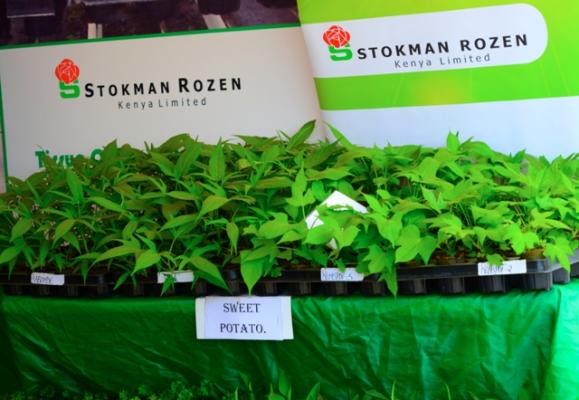Press Release
Nairobi September 11, 2013: The Kenya flower industry can now measure its carbon emissions following the development of an innovative kit for use by growers to record how much energy and water is being used per unit area of production.
Dubbed the Carbon Reduction and Opportunities Toolkit (CaRROT), the computer generated data platform has been developed by Camco Advisory Services, in conjunction with the Kenya Flower Council, the Horticultural Crops Development Authority, and funded by the Climate and Development Knowledge Network (CDKN).
According to Camco Managing Director Mr Stephen Mutimba, the platform is the first of its kind in the world, and gives Kenya’s flowers an edge in the markets that have become sensitive to carbon impacts in the production processes, with consumers giving preference to goods from suppliers who demonstrate that measures to mitigate environmental impact are incorporated in the value chain.
Kenya Flower Council CEO Mrs Jane Ngige says the kit will provide the data required to show that “our flowers are grown in a low carbon emission environment and increase marketability.
Mr Mutimba says that although Kenya is a low carbon emitter by international standards, it is important to build a system that gives clear indicators so that it can serve as a guide to an action plan to manage the situation. “In the absence of data that indicates how much one is emitting; it is not possible to tell how the one fairing’’, said Mr Mutimba.
The toolkit will capture data on usage of water, fuel, gas, kerosene and power among other parameters and at the same time indicate sources over 13 months, the minimum measurable period. Once the information is fed into the system, it automatically calculates the percentage of carbon emissions making it possible for a grower to know the highs and lows from each application. The toolkit will also capture data on pesticide, fertilizer applications and cold storage operations all of which impact on emissions.
According to Mr Mutimba, the flower industry has an existing data on power and water usage but this has not been used as a measure of carbon emissions, except among growers with international affiliations with international firms, which are required to provide the data for carbon taxes. The toolkit therefore provides a uniform approach to the process irrespective of size.
“The data generated by the CaRROT will show the world that despite airlifting our flowers, the carbon from airfreight is much less compared with production processes in Europe where they use more energy to light and heat greenhouses, while most of their operations are mechanized”, said Mrs Ngige.
Kenya becomes the first country in the world to develop a flower sector specific CaRROT. Other nations like South Africa and Australia have a horticulture kit; therefore Kenya will lead the way.
The flower industry in Kenya is known for taking measures to respond to environmental sensitivity by embracing alternative sources of especially water and power. For instance, Oserian has developed geothermal energy for heating greenhouses. Bilashaka also in Naivasha is using solar energy while Timaflo in Nanyuki is also on solar. Many farms from all growing regions have sunk boreholes and invested in water collection and storage facilities drastically reducing reliance on lakes and rivers; developments that contribute to carbon reduction. In a related development, studies to establish whether flower farm waste can generate energy indicate that it is indeed possible following the release of preliminary reports from two farms working in conjunction with the Ministry of Energy– Simbi Roses in Thika, and PJ Dave in Isinya.
In the final analysis, the sector expects to consolidate data and present an industry carbon emission position – in about five years when data can be compared and clear indicators given over a reasonable period.
According to Camco, data for the various regions is different due to the resources at growers’ disposal. “Growers in Naivasha where the freshwater lake is available is different will produce a different result from Isinya where they mostly use boreholes; and Nanyuki where they access rivers”, said Mr Mutimba.
The other important observation will be the data picked at different seasons as it will indicate the quantity of resource utilization as determined by seasonality.
“The flower industry is moving towards markets sustainability, reduction of costs and efficient utilization of resources at all times and this data will be useful in knowing what measures to take to manage bad and good situations,” said Mrs Ngige.
Participation in the CaRROT is free with data collection forms available at Kenya Flower Council website. Although the system is voluntary at the moment, the parties are urging growers to embrace it because at some point it may become mandatory as the world demands for data for emissions disclosure.
For further information please visit the CDKN project page at www.cdkn.org/regions/africa or contact:
Camco – Mr Stephen Mutimba, Managing Director, Camco Advisory Services (K) Limited, stephen.mutimba@camcocleanenergy.com , Tel. +254 20 387 5902 or +254 020 387 1027
KFC-Jane Ngige, Chief Executive Officer, email kfc@wananchi.com,Tel 0720692477, 0733639523
By Catherine Riungu, news@hortinews.co.ke

